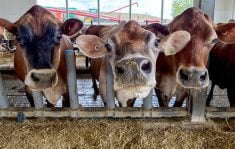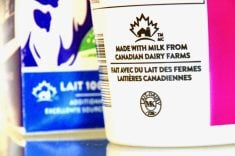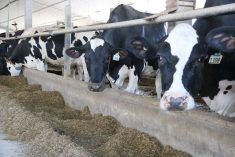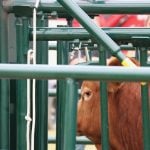The Canadian Agri-Food Trade Alliance says a bill meant to shield supply managed industries during future trade negotiations is “terrible trade policy for a country that depends on exports.”
The industry group took issue with Bill C-282 in a recent letter to the Canadian Senate.
The bill would amend the Department of Foreign Affairs, Trade and Development Act to prevent trade negotiators from making commitments in an international trade deal that would increase tariff rate quotas for dairy products, poultry or eggs or reduce tariffs on those goods when imported in excess of the applicable TRQ.
Read Also
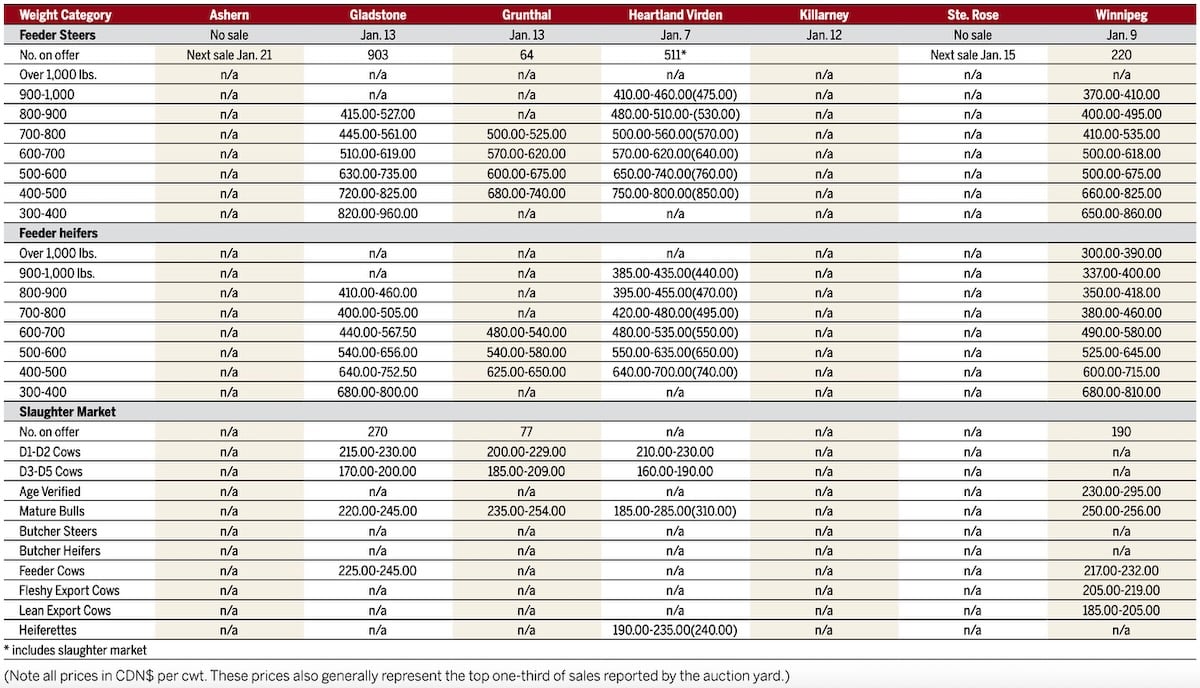
Manitoba cattle prices, Jan. 15
Why it matters: The dairy, poultry and egg sectors are the only agricultural industries in Canada subject to supply management.
CAFTA, which describes itself as “a coalition of national organizations that support a more open and fair trading environment for agriculture and agri-food,” wrote that the bill’s timing could not be worse.
“Committee members are undoubtedly aware that the CUSMA is to be reviewed in 2026. In fact, the bill is already bringing negative U.S. attention to our trade policy at a time when we should be working to reduce irritants, not deepen them,” read the letter.
The Canada-United States-Mexico Agreement (CUSMA) is the replacement to the North American Free Trade Agreement. Dairy TRQs have been a point of contention between the U.S. and Canada under CUSMA.
Legislating the protection of supply managed sectors would “legally handcuff our negotiations and restrict Canada’s negotiating capacity,” CAFTA wrote.
In an email, CAFTA executive director Michael Harvey said protecting supply management during international trade negotiations has been “normal” practice for some time.
“What is not normal is changing the law to mean a negotiator is banned from even discussing issues,” wrote Harvey. “That leads to weaker outcomes for Canada, and it means that sectors that depend on exports (the ones CAFTA represents) will not be able to count on our negotiators having the room to manoeuvre that they need at the table.”
Doug Forsyth, director general, market access and trade controls bureau with Global Affairs Canada, said the bill’s passage would narrow negotiator options. He appeared before a Senate committee in a technical advisory capacity on the issue.
“I think it would be reasonable to expect future negotiating partners to adjust their own approach to negotiations with Canada, which could very well limit our opportunity to maximize the overall commercial significance of new trade agreements for Canada in the negotiation,” he said.
“As soon as you take things off — if you were to start removing things from the table, starting to narrow the scope of the negotiation — your trading partner does that as well.”
Forsyth said he didn’t know how the U.S. would react to the bill’s passage, but “I can’t imagine that it would be positive.”
The National Farmers Union, which has supported supply management practices in the past, says there’s another side to the story that goes back to Canada-European Union Comprehensive Economic and Trade Agreement negotiations from 2009 to 2015.
Canadian negotiators used supply managed industries as a “bargaining chip,” giving the EU more access to Canada’s supply managed market in exchange for increasing Canadian beef’s access to the bloc’s market, said NFU director of research and policy Cathy Holtslander.
“CETA purported to give away 13 million tonnes of cheese quota to Europe, purportedly in return for getting access to the European market for beef with pork. And the result was we lost all of that market,” she said.
“And so, that amount of cheese is now being sold in Canada and originates in Europe. So the Canadian milk that might have gone into producing cheeses is no longer doing that in Canada.”
This has created financial difficulties for Canadian dairy producers and the mainly small communities they rely on for labour, she said.
“There’s less money going into the rural communities where the dairy farmers are farming, and instead that is going to Europe.”
In the meantime, highly sought Canadian access to the European beef and pork market has flopped, Holtslander noted.
Canadian beef and pork have seen little gain from the deal since it was signed in 2016. Canadian meat has been fighting regulatory roadblocks to promised market access, including disagreements over carcass washes and hormone use.
“We have a fairly large amount of unused quota market access into Europe for beef and pork,” Holtslander said.
Bill C-282 was introduced in the House of Commons on Nov. 22, 2021 as a private member’s bill, sponsored by Bloc MP Luc Thériault.
It was passed by the House of Commons June 21, 2023 and had its first senate reading that day. Its second reading followed on April 16.






